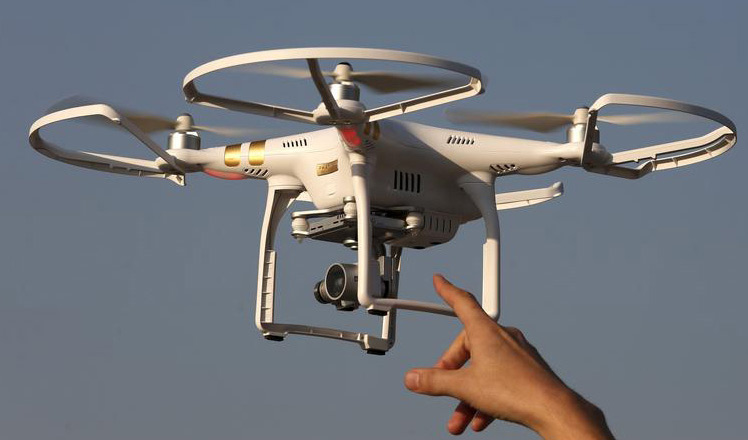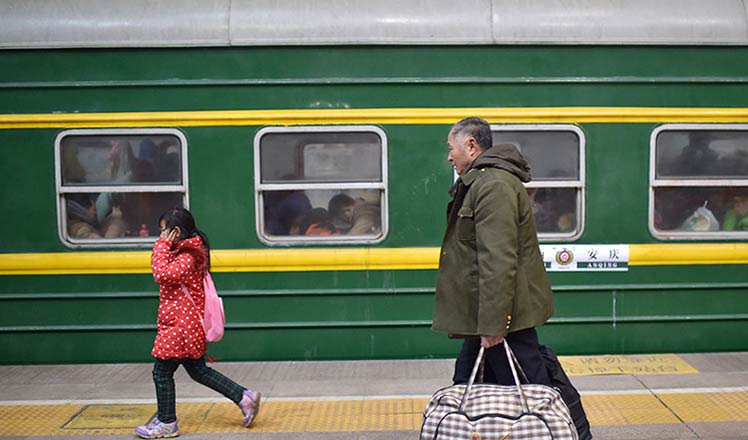China's Nuclear Emergency Preparedness
Updated: 2016-01-27 10:00
(chinadaily.com.cn)
|
||||||||
― Arranging decontamination and medical treatment. Professionals shall be dispatched to remove or minimize radioactive pollution affecting people, equipment, premises and the environment. A nuclear emergency preparedness medical rescue force shall be organized to perform medical diagnoses, case identification and medical treatment, including on-site first-aid treatment, local hospital treatment and backup professional treatment.
― Controlling access passages and ports. Zones shall be demarcated according to the areas affected and strict control shall be enforced over the passage of people, vehicles, equipment and supplies in and out of the designated passages. People, vehicles, cargo containers, goods, travelers' belongings and parcels moving in or out of the border checkpoints shall be screened for radiation detection and control.
― Strengthening market supervision and regulation. Necessities shall be subject to market supervision and regulation in a timely manner in line with the supply of market and the public psych in the areas affected. Manufacturing, processing, circulation and consumption of contaminated food and drinking water shall be banned or limited, so as to prevent or minimize the intake of radioactive substances.
― Maintaining social order. Illegal or criminal acts, such as spreading rumors to create panic, shall be dealt with rigorously. Additional makeshift police posts shall be established to reinforce security patrols in important locations such as settlement sites and storage places for rescue supplies. Security for important premises such as the site of the nuclear accident shall be enhanced, and traffic control in the surrounding areas shall be properly coordinated according to actual needs.
― Releasing accurate official information. Accurate and official information shall be duly published to the public by the central, provincial (regional or municipal) governments and operators of nuclear installations in accordance with International Atomic Energy Agency (IAEA) practice, and the laws and regulations of China to ensure that information with respect to nuclear accident status, effects on the public and individual protection measures shall be disclosed to the public in an open, transparent and timely manner.
― Doing well in notifying the international community and requesting for help. Notification shall be given to the international community in accordance with the Convention on Early Notification of a Nuclear Accident of the IAEA. Request for assistance shall be made to the IAEA and the world community in accordance with the Convention on Assistance in the Case of a Nuclear Accident or Radiological Emergency of the IAEA, depending upon the actual situation.
Establishing a robust system of technical standards for national nuclear emergency preparedness. A complete system of technical standards for national nuclear emergency preparedness shall be established, and it covers the standards for classification of nuclear power plant emergency planning zones, nuclear accidents and emergency status, implementation of emergency protection actions, and definition of emergency intervention principles and levels of intervention, so as to provide a primary technical guideline for the implementation of nuclear emergency preparedness and response.
Strengthening emergency on-duty system. An emergency on-duty system shall be established to ensure that each level of nuclear emergency organization stays on-duty 24 hours a day. National contact points for nuclear emergency preparedness under the national nuclear accident emergency office shall be on duty for nuclear emergency preparedness to collect information about domestic nuclear installations and keep the IAEA updated.
- A glimpse of Spring Rush: little migrant birds on the way home
- Policy puts focus on genuine artistic students
- Police unravel market where babies are bought, sold as commodities
- More older pregnant women expected
- Netizen backlash 'ugly' Spring Festival Gala mascot
- China builds Mongolian language corpus
- Special envoy to visit Laos and Vietnam
- El Nino expected to wreak havoc in S. America well into 2016
- Police officer rescues frightened sloth at corner of busy highway
- US Secretary of State visits Laos, aiming to boost ties
- 2 Chinese nationals killed, 1 injured in suspected bomb attack in Laos
- New York, Washington clean up after fatal blizzard

 Creation of China Daily's Tibetan-style font
Creation of China Daily's Tibetan-style font
 Drone makers see soaring growth but dark clouds circle industry
Drone makers see soaring growth but dark clouds circle industry China's Zhang reaches Australian Open quarterfinals
China's Zhang reaches Australian Open quarterfinals
 Spring Festival in the eyes of Chinese painters
Spring Festival in the eyes of Chinese painters
 Cold snap brings joy and beauty to south China
Cold snap brings joy and beauty to south China
 First trains of Spring Festival travel depart around China
First trains of Spring Festival travel depart around China
 Dough figurines of Monkey King welcome the New Year
Dough figurines of Monkey King welcome the New Year
 Ning Zetao, Liu Hong named China's athletes of the year
Ning Zetao, Liu Hong named China's athletes of the year
Most Viewed
Editor's Picks

|

|

|

|

|

|
Today's Top News
National Art Museum showing 400 puppets in new exhibition
Finest Chinese porcelains expected to fetch over $28 million
Monkey portraits by Chinese ink painting masters
Beijing's movie fans in for new experience
Obama to deliver final State of the Union speech
Shooting rampage at US social services agency leaves 14 dead
Chinese bargain hunters are changing the retail game
Chinese president arrives in Turkey for G20 summit
US Weekly

|

|








